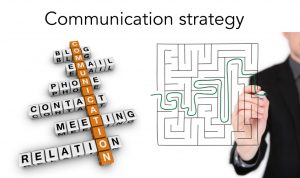
In July, the Aubia Communications Blog focuses on writing. In this first post, I celebrate the U.S.’ birthday by looking at the core documents that created our country. Then I provide you with a checklist and other resources for press release and blog writing. I wrap up the month with a post on how reading makes you a better writer.
Tomorrow, the United States will celebrate its 238th birthday. When the forefathers declared the country’s independence, they first did so in inspiring prose. With items like the Declaration of Independence and the preamble to the Constitution, these literary men provided content that has lived on through history and inspired orators for generations.
A history of inspiring content
After more than 160 years of British rule, the United Colonies began to seek independence as free states in the 1770s. Due to a lack of response from the British crown addressing American grievances and a “taxation without representation” government structure that didn’t support the Colonies, the King’s subjects across the ocean began to implement their own ruling formats. By 1776, the Continental Congress called for and passed resolutions for a complete break from England.
Knowing that their actions would eventually lead to war, the authors and editors of the famous documents, such as Thomas Jefferson, Benjamin Franklin, John Adams and James Madison, knew their words would not only need to show the sincerity and desire of freedom to the British Parliament and King, but convince an infant nation to defend the new Republic. Their persuasion and prose had to inspire loyalty and a belief in a greater good among an audience that was conflicted yet determined. How could they inspire such feelings and actions of patriotism?
How to write inspiring content like an American forefather
With the pressure of creating a new nation resting upon their quills, the forefathers created some of the most inspiring content in world history. With the following tools, they motivated a nation.
1. Inclusive voice
We the People of the United States, in Order to form a more perfect Union …
The preamble to the Constitution of the United States starts off not with a disconnected body but with the powerful “We.” The authors could have said “The Continent Congress of the United States” or “The citizens of the United States,” but they didn’t. They gave ownership of their newly-formed nation to everyone in their audience with “We the People.”
2. Powerful action verbs
We hold these truths to be self-evident, that all men are created equal, that they are endowed by their Creator with certain unalienable Rights …
Thomas Jefferson created vivid imagery in the Declaration of Independence when he chose to empower the audience with verbs full of meaning. Instead of just “believing” in something, he painted the distinct picture in the reader’s mind of how the American people “hold” a truth to be implicit. Men weren’t just “made” but “created,” didn’t just “have” but were “endowed” with rights, invoking a spiritual and divine sense in the authority of the matter.
3. Emotionally-charged concepts
A well regulated Militia, being necessary to the security of a free State, the right of the people to keep and bear Arms, shall not be infringed.
One of the most debated amendments in the Bill of Rights today, James Madison knew these idealistic notions were important to his audience. By eliciting impassioned responses, he gave the citizens of the United States of America reason to support the new government.
What inspires you?
The American forefathers created inspiring content generations the world over have drawn from and the most famous orators of modern times have used in their writings. While you are grilling out or watching the fireworks show, remember these powerful words and ideas that sparked a revolution. What other historical documents have inspired you?
Happy Fourth of July!



